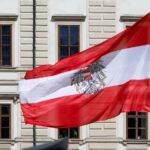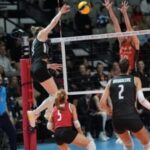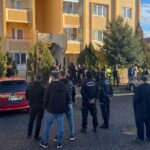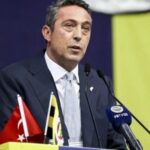Sırbistan Cumhurbaşkanı Aleksandar Vucic Pazar günü, Beyaz Saray’ın Kosova sınırı boyunca “istikrarı bozucu” bir güç yığınağı yaptığı yönündeki iddialarını reddetti; bu durum, Sırbistan ile eski toprakları arasında onlarca yıldır devam eden çatışmanın alevlenmek üzere olduğuna dair korkuları artırdı.
Instagram’da yayınlanan bir videoda konuşan Bay Vucic, Kosova yakınlarında askeri güçlerin önemli varlığına ilişkin Sırbistan’a karşı yürütülen “yalan kampanyasını” kınadı. Olay yerindeki New York Times muhabirlerine göre, Pazar günü en az bir düzine zırhlı savaş aracının sınır bölgesinden dönerken görülebildiği görüldü.

Video, Sırbistan’da Kosova sınırı yakınında zırhlı savaş araçlarını gösteriyor. Kredi Kredisi… Constant Meheut/The New York Times
Mr. Vucic, in the video, maintained his hard line on Kosovo, whose independence Serbia has never officially recognized. He vowed to defend ethnic Serbs living there and oppose attempts by the Kosovar authorities to assert their authority over them. “You can only dream about the independence of Kosovo,” he said.
On Friday, John F. Kirby, a spokesman for the Biden administration, said American officials had monitored an “unprecedented staging of advanced Serbian artillery, tanks and mechanized infantry units” along Kosovo’s border, describing it as a “very destabilizing development.” He called for a drawdown of Serbian forces near the border.
The announcement came just a few days after ethnic Serbian gunmen stormed a village in northern Kosovo, in a violent clash that left four people dead and was largely regarded as the most serious confrontation between the two ethnic communities in recent years.
Kosovo, where a majority of the population is ethnic Albanian and Muslim, declared independence from Serbia in 2008, almost a decade after a NATO bombing campaign drove Serbian forces, responsible for years of brutal mistreatment of ethnic Albanians, from Kosovo. Since then, the two countries have regularly clashed over Kosovo’s treatment of its minority ethnic Serb population.
“This was the most serious incident since the end of the war in Kosovo in June 1999,” Igor Bandovic, the head of the Belgrade Center for Security Policy, said in an interview, referring to the episode in the village.
Mr. Bandovic said it remained unclear whether Serbia had deployed troops near the Kosovo border after the shootout, or whether they had already been there before it. The Kosovar government said in a statement that Serbian troops had been deployed in three directions along the country’s northern and eastern borders, describing it as a new sign that Serbia wants to destabilize its former territory.
Mr. Vucic told The Financial Times on Saturday that he had no intention of ordering his country’s military forces to cross the border into Kosovo because it would not “be beneficial for Belgrade.” He said that the number of Serbian forces near the borders had declined over the years and that he would continue to draw them down.
Mr. Vucic’s office declined to comment on recent events.
U.S. officials reached out to the leaders of Serbia and Kosovo to de-escalate the situation and urge them to engage in diplomatic dialogue.
But Western attempts to normalize ties between the two countries have repeatedly failed over the years. Serbia insists on protecting its ethnic Serbs, who make up around 5 percent of Kosovo’s population of 1.8 million people and are concentrated mainly in the country’s north. The Kosovar government, for its part, has failed to put in effect a tentative agreement granting greater autonomy to Serbs living in northern Kosovo.
“Negotiations between Serbia and Kosovo have reached an impasse,” Mr. Bandovic said, adding that the dialogue would be even harder after last week’s deadly clash.
The violence last week involved about 30 masked men who opened fire on a Kosovar police patrol near the village of Banjska, in northern Kosovo, before breaking down the gates of a Serbian Orthodox monastery and barricading themselves inside. The hourslong shootout left one Kosovar police officer and three gunmen dead.
Milan Radoicic, a hard-line top official of the main ethnic Serb political party in Kosovo, who is also under U.S. sanctions for suspected links to organized crime, admitted on Friday organizing and participating in the attack, adding that he had not informed the Serbian authorities of his intention. Mr. Bandovic questioned this version of events, saying that the pro-Serb party in Kosovo was under Belgrade’s control. Mr. Radoicic was in Serbia as of Saturday.
Çatışma, NATO’nun ülkede konuşlanmış 4.000’den fazla askerden oluşan barışı koruma gücünü güçlendireceğini duyurmasına yol açtı.











